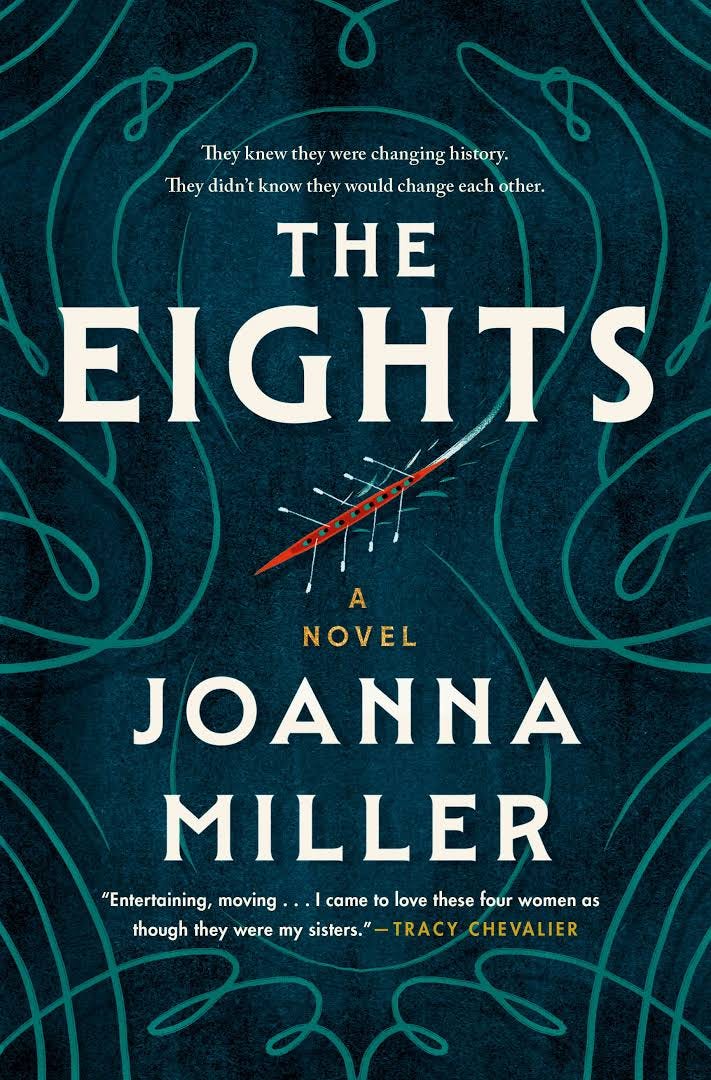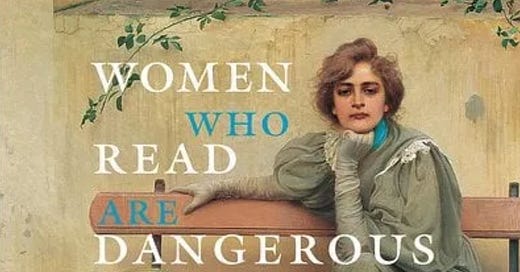It’s spring break and I am in Wisconsin visiting my in-laws. The weather has been underwhelming — cold, dreary, even a couple of morning thunderstorms. Now the sun is out but it’s cold enough to see my breath.
Do I wish I was somewhere warm?
Obviously.
But I’ve been fixating on something and it has helped ease my wanderlust. The night we arrived, I came across a turn of phrase I really loved, and it wasn’t until I sat down to write about it that I connected why it might be so resonant right now.
It comes from the book by Joanna Miller called The Eights, the story of four women studying at the University of Oxford in 1920 when the school first officially admitted and recognized female students in its 1,000-year history.
The two female protagonists were walking through a museum looking at Marry Anning’s ichthyosaur fossil, and one reminded the other of the importance of women seeking equal citizenship of the mind.
It was the first time I’d come across this phrase. I read the paragraph again. Women walking through a museum, a fossil with fish bones preserved in its rib cage, citizenship of the mind.
I looked it up and it was a term commonly used in feminist contexts around academia and intellectual parity. Oxford famously celebrated its male students for an entire millennium before officially recognizing women as students there. This was against the backdrop of women “winning the vote” in England, but only if they were 30+ and owned property.1

A century after this fictional conversation took place in The Eights, having equal citizenship of the mind is still a conversation to be had. But that’s not what I’m writing about today.
What I’m writing about is, of course, reading.
If knowledge is a gateway to full participation in society, then reading is an act of rebellion.
Nobody can threaten what we learn or read. The information we consume belongs to us, and I know I’m in good company here in this corner of the internet, commanding full citizenship of the mind by pursuing books.
Back to Oxford. On March 8, 1921, Oxford held a talk called The Contest for the Equal Citizenship of the Mind. It was designed to celebrate 100 years of women being able to attend Oxford. But the first women’s colleges at Oxford were founded in 1879, so for all that time, women attended school there without recognition. They were able to attend lectures and take exams, but they weren’t considered full members of the University until 1920, the year the four protagonists of The Eights attended Oxford.
The reason this matters because the women still studied. They still attended lectures and sat for exams. They rebelliously took up citizenship of the mind — recognition be damned.
One hundred years is not that long ago. We may have more rights than the first women able to matriculate at Oxford, but now is not the time to become complacent. It’s the time to learn more and really take up our rightful spots in the mind.
We do that by reading. And we do that by talking about reading, and writing about reading. Because women who read are dangerous.

The pursuit of knowledge among women is the very thing the patriarchy has feared for centuries. One only needs to look at Oxford to understand it. Better yet, one can read books like The Eights to get a picture of what it was like in one of the world’s most prestigious universities when women had to remind each other of the importance of seeking equal citizenship of the mind.
So here I am, in a coffee shop I chose because of its bright light — with the sun shielded by the blinds three people along the wall of windows individually pulled down — thinking about how I’m not on spring break in San José or Mallorca, but I’ve got a passport to go anywhere in any time period I want. I’ve earned my citizenship and I get to flash my residence any time I want. (And in my opinion, the more often society sees women taking up their rightful citizenship, the better.) Paying close attention to a feminist novel taking place a hundred years ago and writing about it, impervious to the many societal demands on my time, I am rebelling.
What I read in March
I took a break from flooding my mind with others’ input, and my reading slowed a bit this month. I’m not sure how much clearer I am cognitively but I do celebrate the fact that I read fewer books than is typical and I don’t feel like I’m lacking. (Is this counterintuitive to the whole essay I just wrote? Maybe?)
- | Read my Q&A with the author here.
How to Build a Goddamn Empire by
- | I had a very fun conversation with Morgan last week and I’m looking forward to sharing it with you all on 4/24.
The Love We Found by Jill Santopolo | Read my thoughts on that here.
What are you reading? How are you rebelling?
How I’m rebelling: Careless People: A Cautionary Tale of Power, Greed, and Lost Idealism by Sarah Wynn-Williams and It’s a Love Story by
.If you found any value in today’s essay, please forward it to the readers in your life!
Love,
When you purchase books through my links, you support Words on Words and an indie bookstore of your choice at no additional cost to you.
This is a simplified explanation. Here’s more: The Representation of the People Act granted women over 30 the right to vote in England, but only if they met certain property qualifications (they had to be registered property occupiers, or married to one, of land or premises with a value £5+, or they had to be graduates voting in a university constituency).






I enjoyed your summary, Kolina! This week I'm reading The Book of Disappearance, which is a little act of rebellion. I recently came across a review of old book on writing I remember loving at the time - Several Short Sentences on Writing by Verlyn Klinkenborg. He writes that the most subversive thing you can do is to write clearly and directly, asserting the facts as you understand them and your perceptions as you've gathered them. So that's what I'm doing.
Thank you for reading It's A Love Story! I hope you enjoy it!